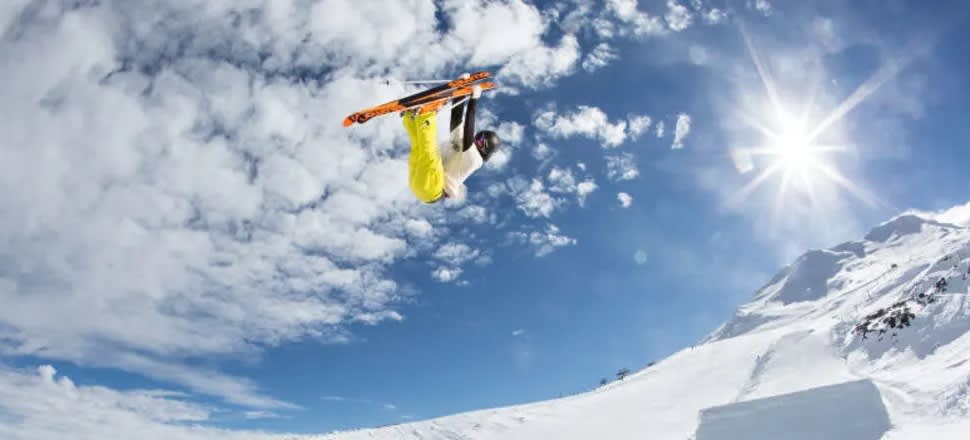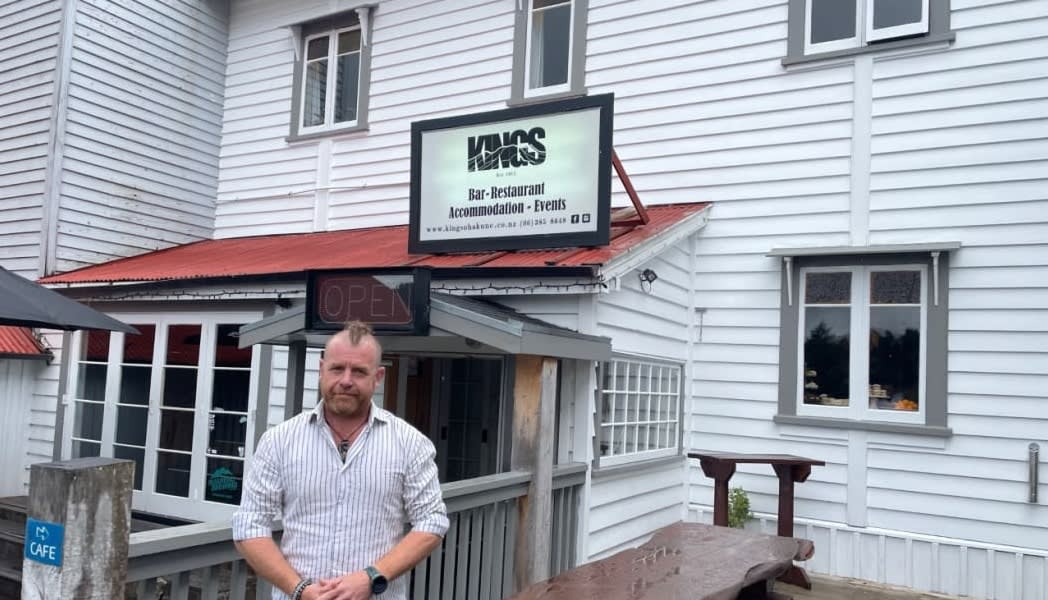
Two NZ consortiums are officials' preferred bidders for the insolvent Turoa and Whakapapa, but the investors are yet to persuade iwi
A few months ago, Ohakune hotelier Stu Robinson was 50-50 over whether he would have to close the doors on the town's historic 25-room Kings Hotel.
"I've worked in hospitality around the world, and these past four years have been by far the hardest," he says.
With no snow, few guests, and staff shortages, he and his wife, Dee, rolled up their sleeves. "I did more housekeeping this year than I've done in the last six years combined. I've cooked more in the kitchen because of the staff shortage, I've had to run service, I've cooked steaks – thank God, I've still got the touch."
The town of Ohakune is at the foot of the road that leads up Mt Ruapehu to the Turoa ski field, one of two big commercial fields on the mountain that had been run by the not-for-profit company Ruapehu Alpine Lifts. The ski fields are the biggest employers in the surrounding district. But in October last year, the company called in voluntary administrators – it was in effect insolvent.
READ MORE: * Ruapehu troubles a tangible impact of climate change * Give mountain a chance to recover, say Ruapehu iwi * Slippery slope? The future of skiing on Ruapehu
With a watershed creditors meeting to decide the ski fields' fate just one month away, Newsroom understands ministry advisors have recommended the two fields be broken apart and sold separately.
The Ministry of Business, Innovation and Employment (MBIE) is expected to announce its preferential bidders shortly. It's understood Ohakune business couple Christine and Greg Hickman, backed by the property developer Cameron Robertson, have been given the nod by officials to buy the Turoa ski field.
The big Whakapapa field, which attracts thousands of Auckland and Waikato skiers every day in snow season, is to be sold to a group fronted by local industry veteran Dave Mazey – the ski field boss who previously merged the two fields when Turoa was last in administration. He's financed by the South Island Office, a Christchurch-based investment group led by another ski industry veteran, Tom Elworthy, and composed of investors James Stringer, Sam Rofe and Rob Farrell.
Four final bids for the business had been on the table for the past few weeks, but those are the two being recommended to Cabinet. Neither bidder has the visible financing clout one might expect in entrusting to them the management of $60m-plus in assets and the environmental protection of the big areas they occupy in a Tongariro National Park.

That is why the decision is not being made by the voluntary administrators at PwC, but is going to Cabinet – because to the people of New Zealand, the Turoa and Whakapapa ski fields are not just tourism revenue earners but culturally strategic assets.
Ministers have to sign off on a decision soon. After a second High Court judgment to push back the end of the voluntary administration, PwC administrators John Fisk and Richard Nacey are required to hold a watershed meeting on June 13, with creditors of the insolvent Ruapehu Alpine Lifts.
Any successful buyer would need approval from MBIE, the Department of Conservation, and local iwi. Mt Ruapehu is the subject of a major ongoing Treaty claim, and iwi indicate they will expect far better engagement from the preferred bidders. They will set high standards for the mountain's environmental management.
The length of time MBIE is taking to review the final bids is a major reason for the meeting being delayed. There are vexed issues.
The ageing infrastructure will likely require the Government to invest good money after bad.
"I know that by an election year, the Government would be really struggling to justify letting the central North Island basically die," Robinson says. "Because if they don't do anything on that mountain, now, most of the equipment will not be usable. It wouldn't last a winter season – it would have to be scrapped."
With all the parties bound by non-disclosure agreements, PwC administrator John Fisk will say little: "Everything’s moving in a positive direction,” he insists. "The parties have four weeks to actually try to hammer something out, hopefully, to be able to open for the season."
He says that for there to be two sides of the mountain operating independently, there will need to be discussion between those parties about how that would work. "It’s complicated."
Protecting koro
Rakeipoho Taiaroa knows the mountain like a family member. "I've spent my life here up the mountain. I'm both Ngāti Rangi and Tūwharetoa. My heritage sort of takes me around the mountain – when I was at high school, I was one of the few beige skiers on the mountain! My kids ski and snowboard, I still snowboard. So yeah, I love it."
To Ngāti Tūwharetoa, Ngāti Rangi, Uenuku and other iwi, the mountain is their koro, intrinsic to their integrity as people of the maunga. There are some, like Ngāti Rangi chair Whetu Moataane who have argued that koro should be given a breather; that rather than hastily finding solutions to reopen for ski season next month, the community would give it a break this year, and take more time to consider the future. They are disappointed to not be consulted.
Taiaroa, now 58, has a new and different relationship with the mountain: he represents a collective of Tūwharetoa trusts that have invested $9.5m as bondholders in the new (and pricey) Sky Waka gondola.
For his investors, he says, the priority has to be to get the ski fields up and running again. And those fields have been the biggest employers for Tūwharetoa people in Ruapehu district. "It's a relatively deprived district."
He expects his grouping, as first bondholder, to be a major player at the watershed meeting – but he's under no illusions that the primary decision on the bids will be made by Cabinet. "Momentum has already started, which we are relatively happy about as bondholders."
Wiari Rauhina, chair of Te Kotahitanga o Ngāti Tūwharetoa, says there has been sadly limited engagement with the iwi thus far – but he's expecting better. Certainly, the successful bidders shouldn't expect iwi to simply rubber stamp their concessions to operate on the maunga.
There will still be strict conservation conditions, he says. "This is very important to us, our mountain, so don't abuse it – work with it."
Locals rightly believe climate change to have contributed to the increasingly erratic weather that means the opening of the Ruapehu ski fields each winter morning is among the most erratic and unreliable of any ski resorts in the world. Last year was almost a write-off for skiers and boarders and for Ruapehu Alpine Lifts – the final blow after two years of Covid lockdowns.
Fisk and Mazey are among those who have suggested to Newsroom previously that to sustain the ski fields for the long term, they will have to be moved further up the mountain – again, at enormous cost.
When the Cabinet is considering how it can afford the managed retreat of homes and roads and core community infrastructure from rising seas and lowering thunderstorms, any long-term commitment to protect Ruapehu's gondola and ski-lifts and cafés may look marginal indeed.
Breaking apart the fields
Two bidders, Pure Turoa and Turoa Alpine Ltd led by former Ruapehu Alpine Lifts (RAL) director John Sandford, had been bidding to buy just the Turoa field. The company name Ruapehu Alpine Ltd is also reserved with the Companies Office, though who reserved it is unknown.
Sandford says though in theory operating Turoa and Whakapapa together presents economies of scale, running them separately has greater benefits.
"Theory and practice don't always match,” he says, pointing out that the two fields typically service different markets and had different cultures.
"If you draw an east-west line through the mountain, the significant majority of Whakapapa come from north of that line, and the same applies to Turoa, where a significant percentage of users come from south of that line."
He says the largest chunk of life passes were used by people who almost exclusively went to Whakapapa, and the second-largest group exclusively used Turoa. Just 5 percent of lifetime pass holders regularly used both fields.
Sandford says this attitude carried through into Ruapehu Alpine Lifts. “There was a sort of them and us perspective between both sides. There was almost enmity to be honest.”
By just owning one field, the operator would be able to build a stronger culture and to focus on its customers from the relevant side of the east-west divide as well as more effectively work with iwi.
The two ski resorts were separate until a merger, which Sandford supported, took place in 2000 to save Turoa from receivership.
He believes the two businesses could still work together constructively if separately owned once again, including the potential to share certain overheads for back-office work.
Ruapehu District mayor Weston Kirton says with iwi and DoC concessions still to be figured out, the final bids aren’t a done deal. “It's going to be a little bit of a work in progress, but the intent is to get the ski season up and running this season which looks promising.
“It's all but snowing at the moment so there are all the hallmarks of a good season ahead, but we’ve got to get the infrastructure together, staffing is an issue, getting the passes in place.
“There’s a bit of work to be done but there’s encouraging signs that even at this late stage we’re going to see some activity on the mountain this season.”
Kirton says the administrator and MBIE must have confidence in the two bidders having sufficient industry knowledge and long-term financial backing.
“All we can do as the general public is to have confidence that all the ducks are going to be a row ... for Cabinet to approve it, have their input and also have confidence in the whole plan.”
Clarification: Cabinet is to be updated on the bidders this week, but is not yet being asked for a decision.







